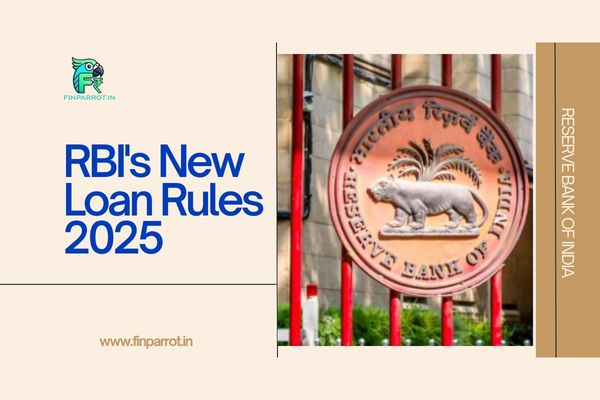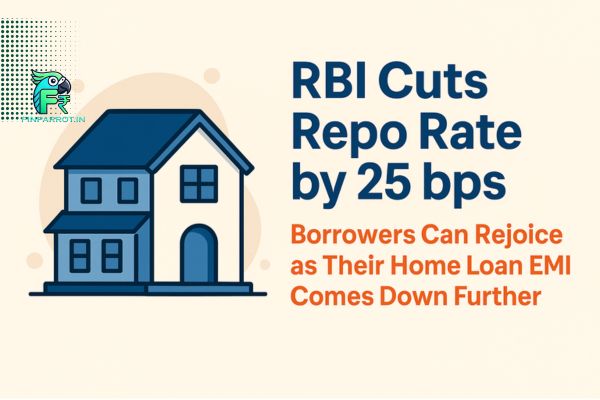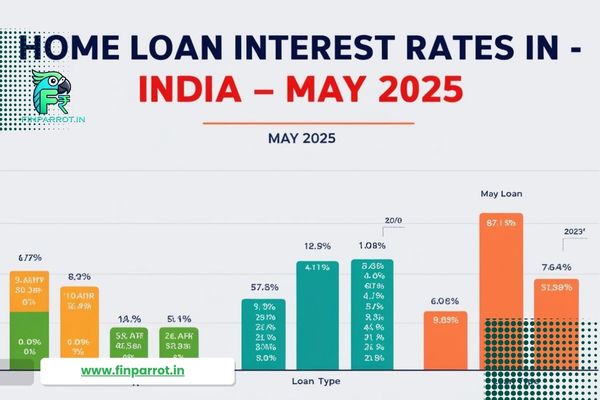Introduction
If you struggle to balance multiple loans right now, listen up! The Reserve Bank of India (RBI) has recently introduced RBI New Loan Rules 2025, which could change how you manage your loans. Whether you’ve taken out a personal loan, car loan, or any other kind of credit, these changes aim to make the borrowing process safer for you and the lenders.
In this blog, we’ll explain the RBI New Loan Rules 2025, why they matter, and how they’ll affect you if you already have multiple loans. No worries, if you’re not a financial expert, we’re here to guide you.

What Are the New RBI Loan Rules?
The RBI New Loan Rules 2025 are designed to make borrowing more responsible. Here’s what they include:
Frequent Updates to Your Credit Report:
In the past, your credit report was updated once a month. But now, banks must update it every 15 days. If you’re doing well with your payments, your credit score will reflect it much faster. Conversely, if you miss a payment, it’ll show up quicker, too.
Stricter Loan Approvals:
Lenders will now look closer at your finances before giving you a new loan. That means they’ll check if you already have existing loans and whether you can handle more debt.
No More Loan “Evergreening”:
Have you ever heard of people taking out a new loan just to pay off old loans? The RBI New Loan Rules 2025 make it harder to do that, so you won’t fall into a debt trap.
Real-Time Credit Tracking:
Lenders will now be able to see your repayment history in real-time, which helps them make faster and more accurate decisions.
In short, RBI New Loan Rules 2025 will make sure you’re borrowing responsibly, and they’ll help lenders make smarter decisions, too.
Read also – Top 5 Best Loan Apps in India
Why did RBI Introduce these Changes?
The reason for these changes is simple: more people in India are taking out multiple loans. With digital lending platforms and easy loan approvals, it’s easier than ever to borrow money. But, many people borrow more than they can repay, leading to financial instability and the risk of default.
Here’s a look at the problems that the RBI wants to fix:
- Borrowers taking on more debt than they can handle
- Lenders not getting real-time updates on borrower repayment history
- People borrow money to pay off other loans, It might get stuck in a monthly debt cycle.
- Delayed credit reporting, which leads to inaccurate risk assessments
With the new rules, RBI creates a safer lending environment for everyone—borrowers and lenders alike.

How Will These Changes Affect Your Credit Report?
One of the most significant changes in the RBI New Loan Rules 2025 is how often credit reports are updated. Here’s what you need to know:
- Faster Credit Report Updates: Instead of waiting up to 40 days for your payments or defaults to appear, your credit report will now be updated every 15 days. This means that if you’re paying your loans on time, it’ll help improve your credit score faster.
- More Accurate Credit Scores: Since updates are happening more frequently, your CIBIL score will reflect your current financial status more accurately. If you’re on top of your EMI, your creditworthiness will improve quickly.
- Harder to Get Multiple Loans Simultaneously: Since your credit report will be updated regularly, banks will instantly know if you already have multiple loans. If you’re trying to take on too much debt, they might hesitate to approve your new loan.
How Will Loan Approvals Change?
If you’re thinking about applying for a new loan, here’s what you can expect:
- More Frequent Credit Checks: Lenders will now check your credit history more frequently before approving any loan. They’ll be able to spot any signs of over-borrowing or financial stress more easily.
- Stricter Loan Limits: If you already have multiple loans, getting approved for a new loan will be more challenging. Banks will evaluate your ability to repay before lending you more money.
- Better Risk Assessment: With real-time data available, lenders will have a clearer picture of your financial situation. This means you’re more likely to get a loan if you can afford it.
For a better chance at loan approval, you should aim to maintain a good credit score and ensure your EMI payments are on time.
How Can Borrowers Benefit from These Changes?
While these new rules might seem strict, they actually benefit responsible borrowers. Here’s how:
- Increased Financial Stability: By keeping track of your loans and paying them on time, you’re less likely to fall into a debt trap.
- More Transparency: With real-time updates, lenders will offer fairer interest rates based on your actual financial behavior, which could work out in your favor.
- Improved Credit Scores: If you manage your loans well, your credit score will improve faster, making it easier to borrow money in the future.
- Lower Risk of Default: Borrowers will now think twice before taking on multiple loans, knowing that the system is watching their every move.

What Should Borrowers Do Now?
With the RBI New Loan Rules 2025 in place, it’s more important than ever to manage your loans carefully. Here’s what you can do:
- Monitor Your Credit Report: Regularly check your CIBIL score and make sure there are no mistakes.
- Avoid Taking Too Many Loans: Don’t borrow money unless it’s absolutely necessary.
- Pay Your EMIs On Time: This is key to maintaining a good credit score.
- Keep a Low Credit Utilization Ratio: Try not to use up too much of your available credit.
- Know the Eligibility Criteria: Lenders will now be stricter about who they approve for loans, so make sure you meet the requirements.
By following these tips, you can stay on top of your loans and make the most of the RBI New Loan Rules 2025.
FAQs
What are the new rules for loan defaulters in RBI?
Wilful defaulters with an outstanding balance of Rs. 25 lakh or more will attract penal measures as per the new RBI guidelines.
What are the new Cheque rules 2025?
Starting January 1, 2025, cheques written in black ink will no longer be accepted, and only blue or green ink will be valid.
Conclusion
In conclusion, RBI New Loan Rules 2025 are designed to create a safer, more responsible lending environment in India. By updating credit reports every 15 days, making loan approvals stricter, and preventing over-borrowing, these changes will benefit everyone in the long run.
If you’re planning to take out a new personal loan, be sure to manage your existing loans wisely. Keep an eye on your CIBIL score, pay your EMIs on time, and avoid taking on too much debt. With these changes, borrowing may seem a bit more challenging, but it will ensure a healthier financial future for everyone.
Most Viewed Post
How Banks Evaluate Your Loan Application















